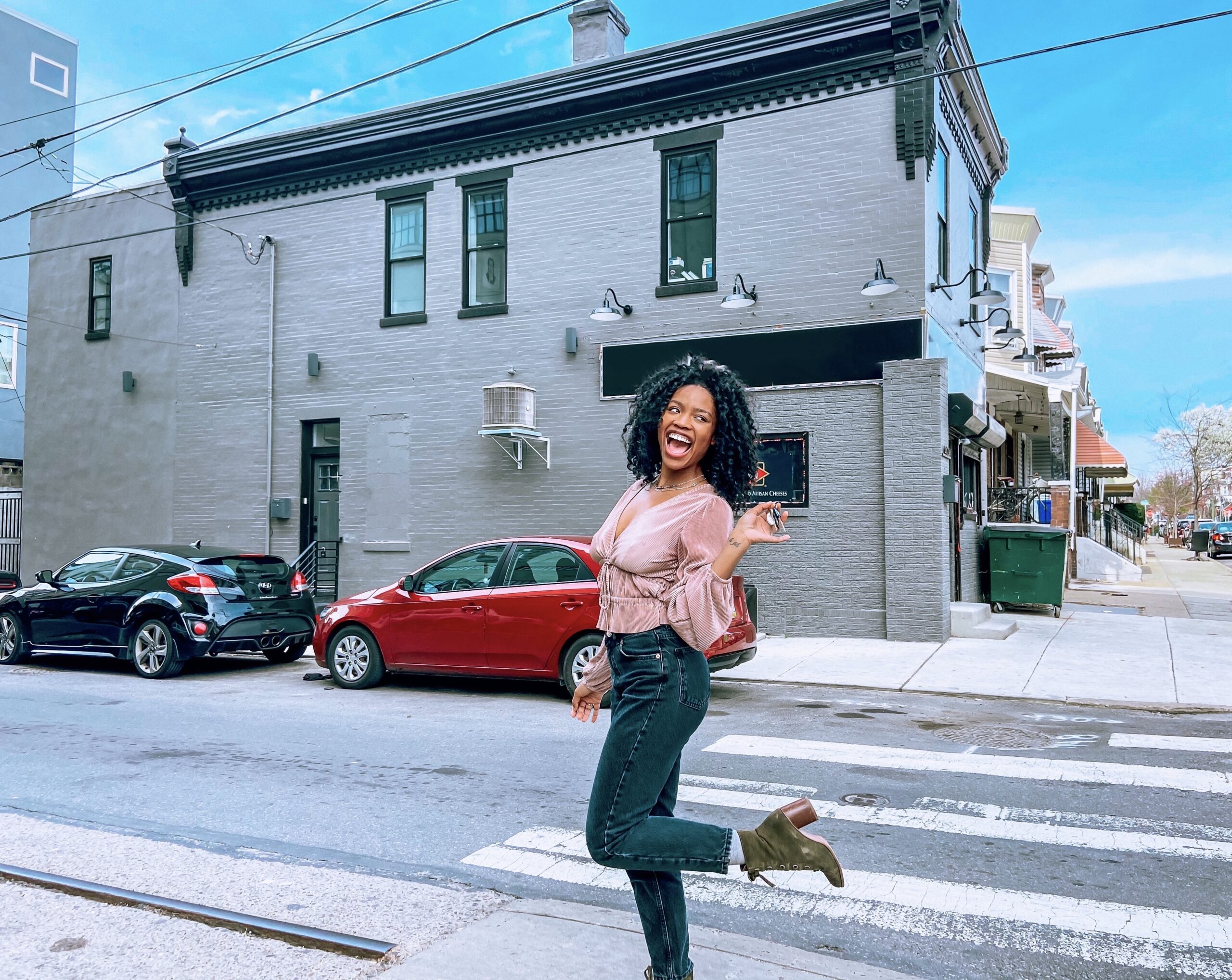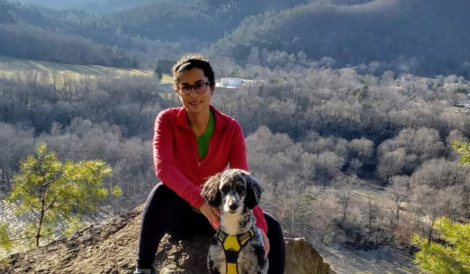Success Stories is a One Savvy Dollar series where we interview millennials who are working on achieving financial freedom through real estate.
The aim is to inspire you into building wealth through real estate because; “real estate is an imperishable asset, ever-increasing in value. It is the most solid security that human ingenuity has devised. It is the basis of all security and about the only indestructible security”.- Russell Sage.
Today’s feature is Gianni who purchased her first investment property on a teacher’s salary. Enjoy!
Can you tell us a bit about you?
I’m Gianni, a 25 years old first-generation wealth builder of Caribbean descent. I was born and raised in Brooklyn, and have recently transitioned from a career in education to studying tech.
I am preparing to fully immerse myself in my studies in the fall due to a competitive scholarship I won to become a Full Stack Software Engineer.
In the interim, I am work-optional and I’m excited to be building my brand First Gen Money Musings, a blog and resource platform for exceptionally diverse first-generation wealth builders manifesting financial freedom.
As a teacher, when did you decide to purchase your first investment property? What was the ‘aha’ moment for you?
I have always loved real estate. I used to scan property listings throughout middle school and fantasize about the places I would live and own in the future.
In college, one of my majors was Urban Studies so I took Urban Development courses and got my real estate license as a sophomore so I could practice selling if I wanted to.
To build wealth, you can either start a business, invest in the stock market or real estate. Why real estate?
Real estate is invaluable because it’s a real, tangible asset. The stock market is based on consumer confidence and collective belief in the system.
While property can theoretically drop in value, ultimately it’s a roof over your head and tends toward a basic survival need.
Additionally, it’s imperative that communities that have been historically excluded from access to property ownership put themselves in the position to challenge those narratives, and proudly step into that responsibility.
Most people think you have to quit your job to invest. Did you keep your job or are you involved in real estate full time? How has the experience been (either way?)
I invested in real estate while working full time as a teacher and earning a teacher’s salary both in the markets and in purchasing real property.
At the moment I am unemployed (by choice), and it is not affecting my capacity to be a real estate investor.
Tell us about your first investment property. How did you find it? How much did it cost and do you still own it?
My first investment property was a renovated, cash-flowing, multi-unit, mixed-use property with air rights for me to build additional stories.
I found it through the Multiple Listing Service (MLS) and knew it was meant for me after seeing it, even though there were others I loved. I was able to close on the property with 3.5% down, and about $20,000 all into the closing.
The property is located in Pennsylvania and the purchase price was $358,000 and I plan on passing it through my generation as opposed to selling it.
What are some mistakes you made during your real estate journey? Did you think trying to purchase your first investment property on a teacher’s salary would be challenging?
Not saving more aggressively earlier on when I’ve earned income.
I have been blessed to secure competitive paid internships and jobs as early as 14 years old and I wish I developed a high savings rate and invested starting then.
Was there any time during your journey where your friends and or family challenged your plans to get involved in real estate especially because you were buying your first investment property on a teacher’s salary?
Not actively, but many of my peers were eager to see if I could really do it.
I said openly on my personal Instagram that I would be a property owner in one year on a teacher’s salary, and I’ve been able to manifest that through a competitive deal.
It seems unconventional, but I’m grateful to say it’s my reality.
Do you invest in state or out of state and which would you consider to be more difficult?
Were any resources such as blogs, books, podcasts particularly helpful to you to get started? How did you find the inspiration to get started?
Absolutely! I love Kendra Barnes, creator of The Key Resource for helping me to see that property ownership is truly possible for black women without saving bucket loads of money, even if you come from a modest salary.
It’s about the habits you put in place to support the vision.
Jamila Souffrant’s podcast Journey to Launch has also been instrumental to my early personal finance journey, by hearing about other people’s wealth-building journeys, many of whom are real estate investors.
Let’s talk about leverage: would you advice reinvesting your profit to pay down the loan or acquiring more using your profits?
It ultimately depends on the deal. Run the numbers to see what’s best for your situation.
If you ensure the property you’re pulling profits from is affordable for you as an investor, then you should be in the position to pull the equity out to invest in new deals.
If you could go back in time and advice your 18-year-old self, what advice would you give him and her?
Save and invest as much as possible, as early as possible.
What advice would you give anyone who is trying to buy their first investment property on a teacher’s salary?
My advice of new investors who would like to purchase their first investment property is to learn from other first-generation wealth builders’ platforms.
Save as much of your earnings as possible to stay ready so you don’t have to get ready for the right opportunity that presents itself.
Look for first-time homeowner programs, grants, and favorable financing. Take care of your credit; high credit scores are leverage.
Make sure your first property is affordable and or has strong earning potential.
What real estate markets do you primarily invest in and which do you avoid completely?
I primarily invest in historically black and brown communities.
How can our readers keep in touch with you?
They can keep in touch with me by following me @firstgenmoneymusings on Instagram for financial freedom strategies.
______________________________________________________
Congratulations, Gianni! Here’s wishing you much success on your real estate and wealth-building journey!
Get the ebook: Don’t Buy Real Estate Until you Read This: 7 Steps For Buying a Profitable Rental Property.
Take a course: The Blueprint to Building Your Six Figure Real Estate Portfolio




